Check this: How to move to Poland? 18 steps for foreigners
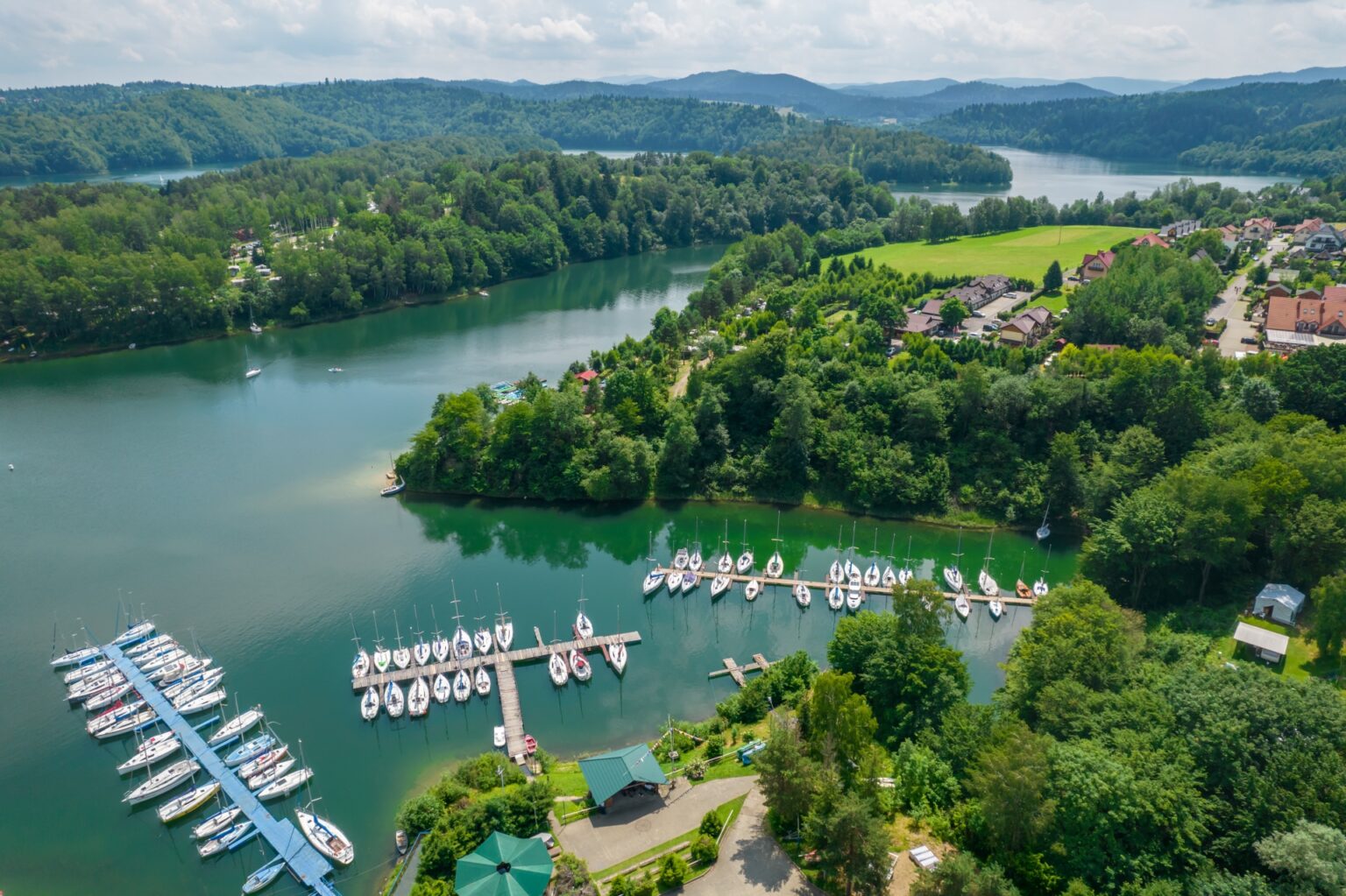
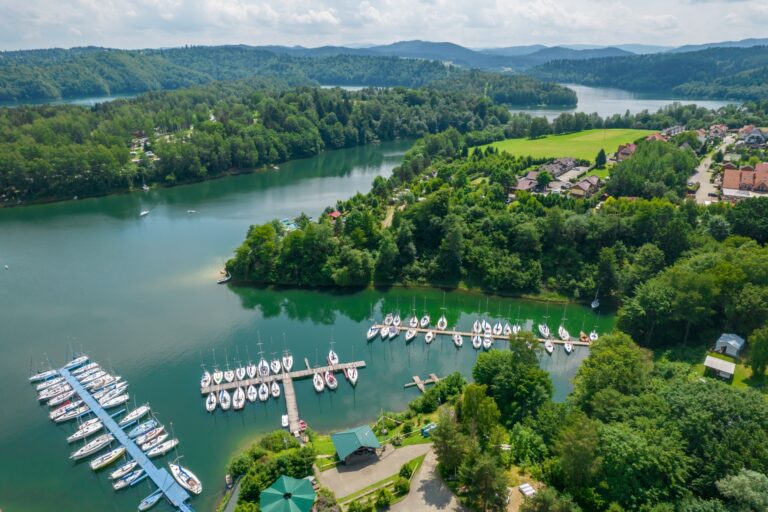
I’ve put together 18 positive and negative aspects of living in Poland to help you decide if moving to Poland is a good idea. Moving to Poland is a decision that can be a bit of a revolution, but for the most part, I think it’s a good idea. However, the decision to move your whole life to another country is never easy – even if the potential benefits of moving outweigh the disadvantages.
In the “advantages of living in Poland” section, I focus on the aspects that make up the image of Poland as a very good, safe and comfortable place to live. Here I talk about Polish society, the cost of living and everyday life in Poland, which often turns out to be more comfortable even than the richer Western European countries.
In the “disadvantages of living in Poland” section, I have tried to talk honestly about the less positive sides of living in Poland. You will read about the still omnipresent bureaucracy, the pretty low level of services provided by the state (which has much better, free-market alternatives) and some aspects of Polish society that could be changed.
In my opinion, the balance of advantages and disadvantages of living in Poland speaks strongly in favour of Poland. The list of potential advantages that came to my mind while writing the text was longer, but I decided to focus on the most important ones for those planning to move.
Check this: How to move to Poland? 18 steps for foreigners
Poland is no longer a backward country, recovering from decades of communism, which is associated with cheap labour and drinking alcohol. Most such associations bear no relation to reality and cease to exist after just a few days spent in Poland. So let’s check what are the most important advantages of living in Poland for foreigners.
Get ready for the first time in Poland
1. Accommodation: book in advance to save money and be relaxed about your first days in Poland.
2. Currency exchange: you can use your bank card, but much cheaper are the free Curve card or Wise account.
3. Rent a car: you’ll be flexible and able to combine a visit to Poland with dealing with all the formalities.
Poles speak English well and are willing to use this language to communicate with foreigners. Poles do not think newcomers should learn and use Polish quickly in everyday matters. Poles realise how difficult this language is and appreciate every effort – even limited to saying “dzień dobry” (“good morning”) in Polish in a shop.
If you want to win the hearts of Poles, start your conversations with a few words in Polish, e.g. “dzień dobry, nie mówię po polsku” (good morning, I can’t speak Polish), admitting that you can’t speak Polish. Your Polish interlocutor will certainly appreciate this effort.
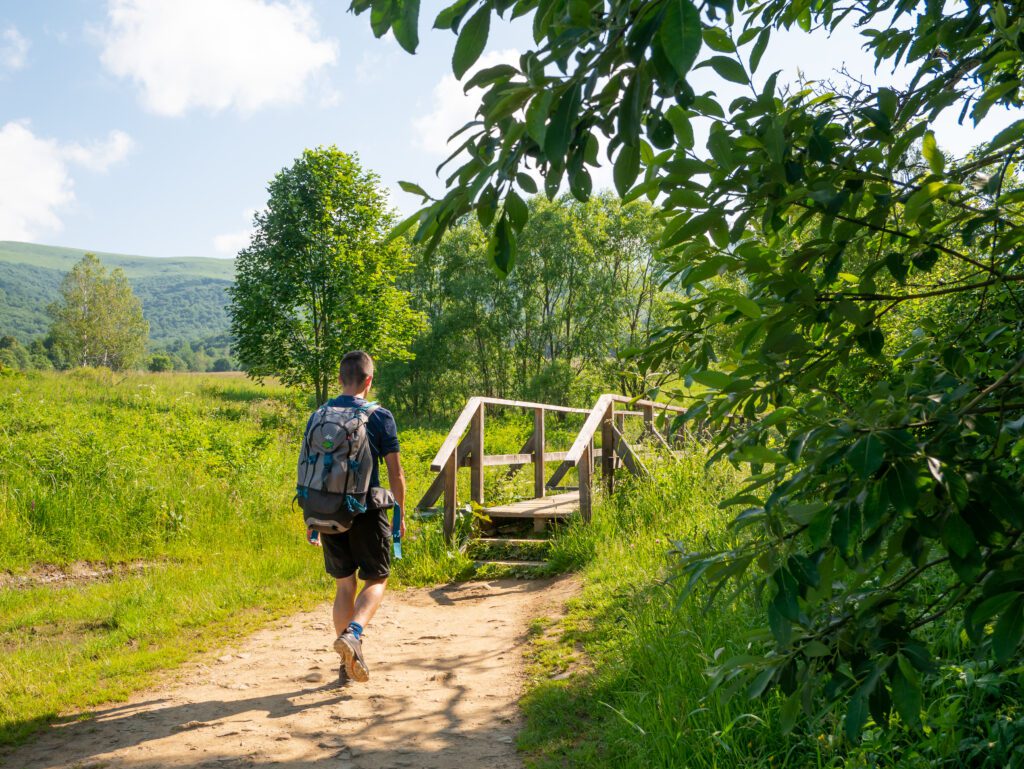
Young people learn English in primary school, high school and often at university as well. English is the main language of communication in many companies operating in Poland, which means that many Poles use it on a daily basis. There is a good chance that you will get along in English in a café, at a railway station or at the doctor’s (in private health care – the state one works much worse).
However, you will find it difficult to get along in English with the older generation of Poles. When they went to school, the compulsory foreign language was Russian (the times of communism and the union with the USSR), and in adulthood, they very rarely supplemented their portfolio with English. Google Translate will be a friend to you in such situations.
Polish cities are some of the most comfortable cities to live in that I have been to in my travels. The cities are very clean – the cleaning services take care of the visual aspect of not only the central districts but also the outskirts of the cities. You will find plenty of rubbish bins on the streets. There is also no shortage of public benches, which make the city more accessible for older people.
There are plenty of parks and green spaces in the centres, and the authorities are slowly withdrawing car traffic from central parts of the cities. There is a growing trend of removing concrete and replacing it with new green spaces, which lowers summer temperatures and makes cities more pleasant to live in.
You can count on services that cannot be found anywhere else in Europe. You can pick up parcels from a network of self-service and 24/7 Paczkomaty. You can do your shopping in Żabka shops (the Polish equivalent of 7/11 with a better selection). There are so many of these shops in Poland that you can often see another shop of this chain from your shop.
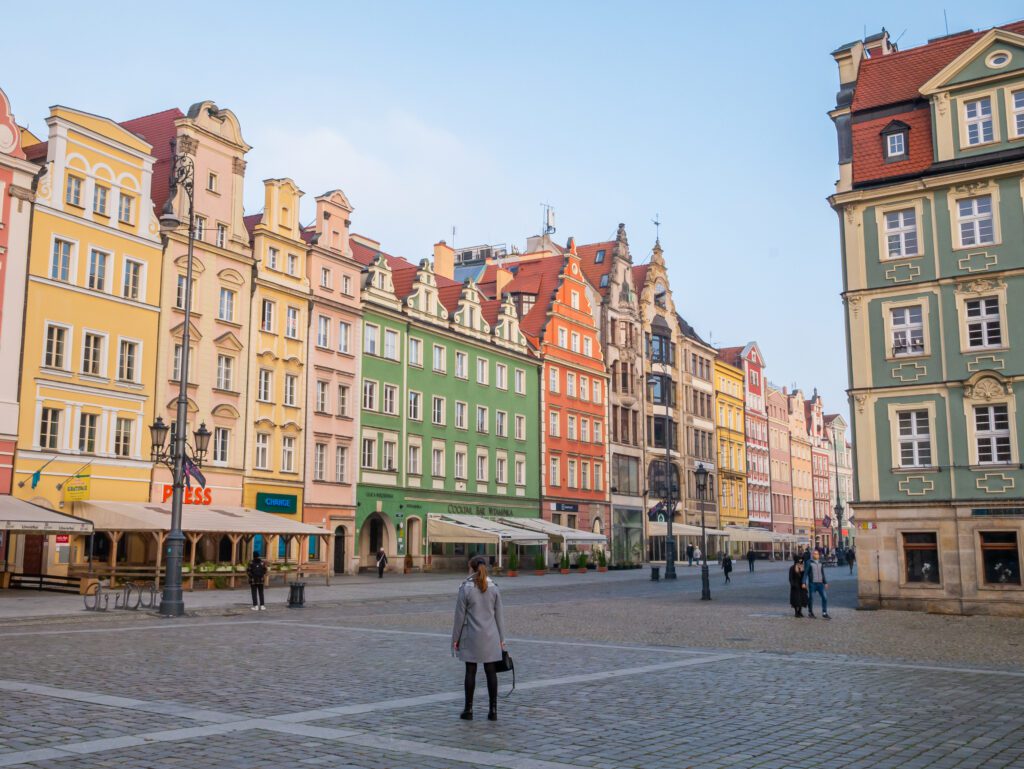
Public transport runs efficiently and is noticeably cheaper than its equivalents in Western Europe. The backbone of public transport is buses, supplemented in larger cities by a tram network. Vehicles from different parts of the city converge at interchanges, and transfers are convenient and cheap thanks to timed tickets available in most large cities.
Polish cities also create a lot of space for remote working. For the past few years, Poland has seen many so-called third-wave coffee shops – small, intimate cafes serving speciality coffee.
They respond to Poles’ boredom with the unified and boring Starbucks-style coffee shops. Poles have fallen in love with coffee and have taken a liking to working outside the home, using either coffee shops or the popular coworking spaces.
The sight of armed policemen patrolling the streets familiar from Western European countries is something encountered in Poland almost as rarely as a hot winter. Travelling a lot in Europe, I have noticed that during evening walks, even outside the centres of big cities, Poland seems to be one of the safest. Even without police presence, Polish cities seem peaceful and far from pathological behaviour.
I am not a fan of surveillance of public spaces, but I have to admit that the large number of security cameras has a positive impact on the level of safety. In addition to city centres, public transport vehicles are also closely monitored, so you can feel quite safe in them. Of course, there are also thefts and robberies in Poland, but walking on the streets does not make me feel any increased danger.
It isn’t worth tempting thieves, who are more likely to target people from abroad. If you don’t have to, don’t show off the contents of your backpack and don’t leave your property unattended. This may unnecessarily draw the attention of potential thieves to you!
The police presence on Polish streets is, in my opinion, balanced. Police officers are seen patrolling the streets, but their presence doesn’t overwhelm public life. Nor are the policemen armed to the teeth – what I see on the streets of German or French cities makes me shiver and want to return to peaceful Poland as soon as possible.
If I had to give one myth about Poles that is actually borne out in reality, it would be…. the ability to ignore regulations. As soon as the Polish government comes up with yet another ingenious regulation, Poles find a way around it the very next day and continue to do what they feel like doing. And there’s nothing wrong with that – it makes Polish society generally relaxed while at the same time knowing how to get its act together.
Check this: How to move to Poland? 18 steps for foreigners
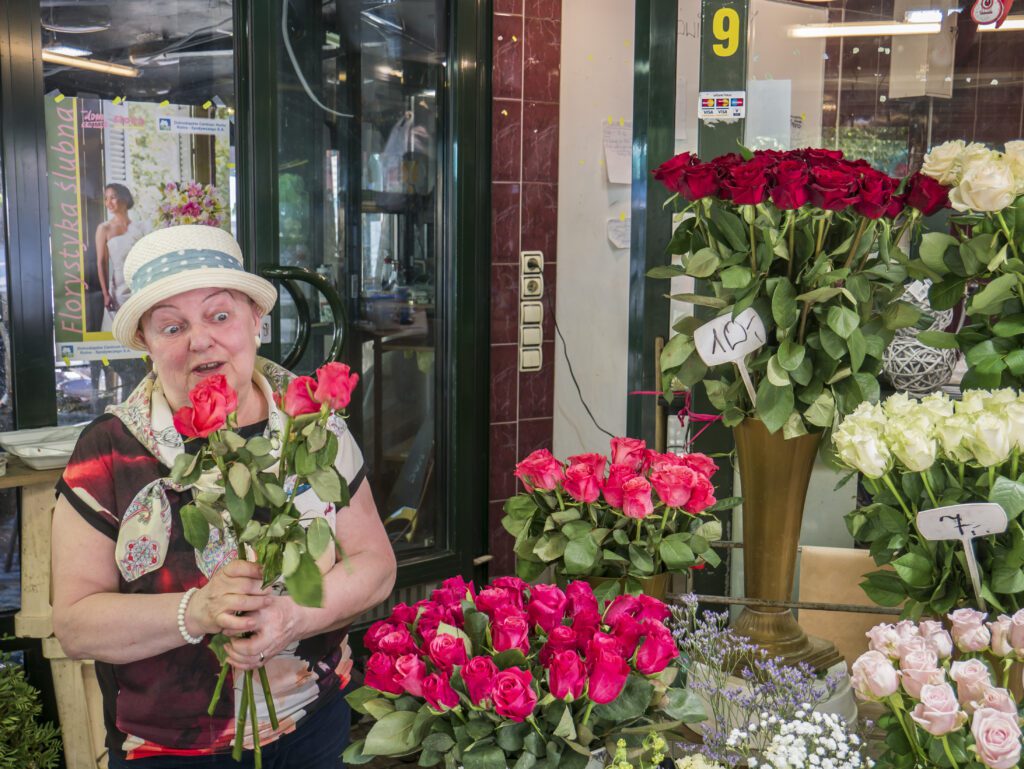
As soon as the Sunday trading ban was introduced, Poles came up with the idea of turning some grocery shops into postal collection points. When it became apparent that employees could not serve customers on Sundays, Poles came up with the idea of introducing self-service checkouts and treating shop employees not as salespeople but as storekeepers. You know the point – what’s common in Poland is creativity combined with cleverness and a good sense of humour.
A great example of Poles’ relaxed approach to life is the issue of marijuana. It’s still illegal in Poland, but since the legalisation of its use for medical purposes…. several hundred thousand prescriptions have been issued to Poles. It’s this “relax” that I have in mind.
Life in Poland is a great demonstration of the Pareto principle. Poles follow 80% of the rules and principles, making living in Poland safe, predictable and comfortable. In 20% of cases, society allows itself to ignore prohibitions that are meaningless and do not serve the good of society (but only meet the expectations of some lobbyists, corporations and powerful social groups).
Poland is certainly not the cheapest country to live in Europe, but the ratio of monthly costs to possible quality of life is, in my opinion, very favourable. The cost of living in Poland is still clearly lower than in Western European countries, and the level of security and quality of life is sometimes clearly higher. From conversations with foreigners living in Poland, it seems that most of them have been positively surprised by Poland.
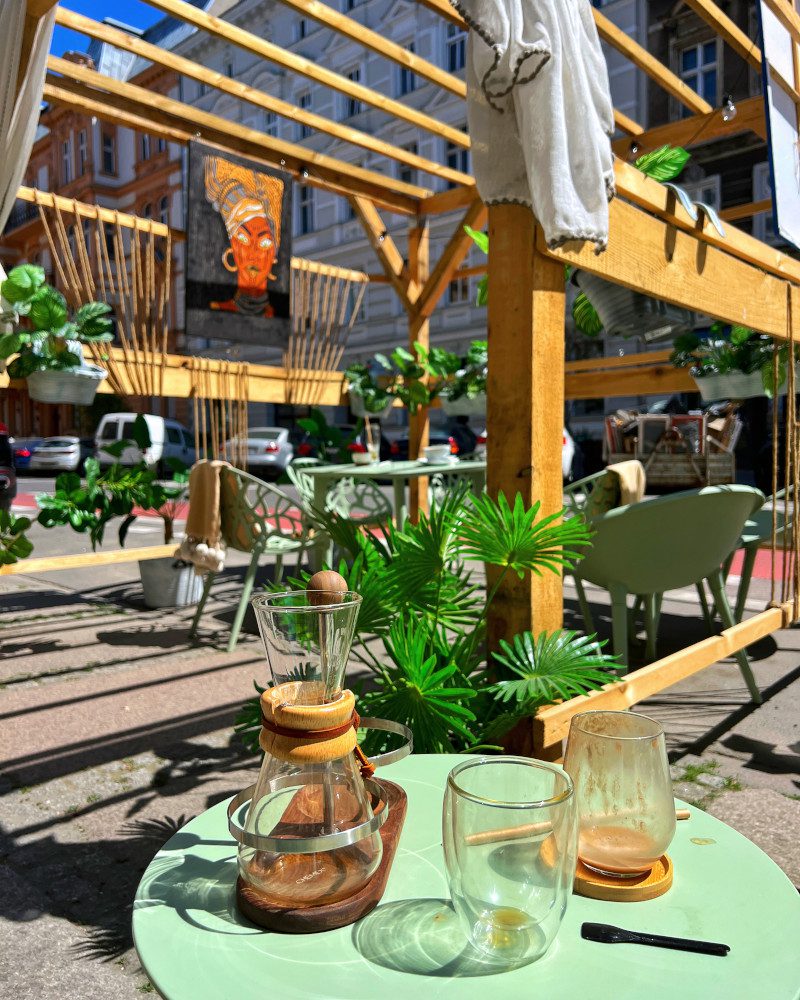

Quite high are the costs of buying and renting flats in big cities – although this is still less than the rates in Germany or France. Moving to Poland, you will benefit from a well-developed transport infrastructure – railways and road networks. Moving long distances around the country is convenient and cheap. Train tickets are cheap in relation to earnings, and most high-speed roads (apart from a few motorways) are free.
Even in Żabka shops, you will have access to vegan and gluten-free products, making it rare for you to shop in specialist shops. If you prefer shopping for organic and healthy products instead of markets, there are plenty of traditional markets in Polish cities with products straight from farmers. If you prefer more convenience, you will also find a lot of more modern health food shops.
Clothes are also relatively expensive, but there are hundreds of second-hand shops in Poland where you can find brilliant clothes in natural fabrics, often for less than 10 PLN (2-3 euros). As I was writing this article, I noticed that all my clothes apart from my underwear come from second-hand shops!
Fuel is also relatively expensive in Poland. However, living in a big city, you won’t need a car (I advise against it both for ecological reasons and unnecessary condemnation to traffic jams). Cycling in Polish cities is convenient – in some of them, the number of cyclists and cycle lanes grows exponentially (e.g. Wrocław). Thefts do happen, but generally, there are fewer and fewer of them every year.
Poland is one of the most diverse countries in Europe in terms of landscape. The north of the country has a long and varied Baltic coastline, where you will find sandy beaches as well as cliffs, shifting dunes, forests, gorges and two beautiful national parks.
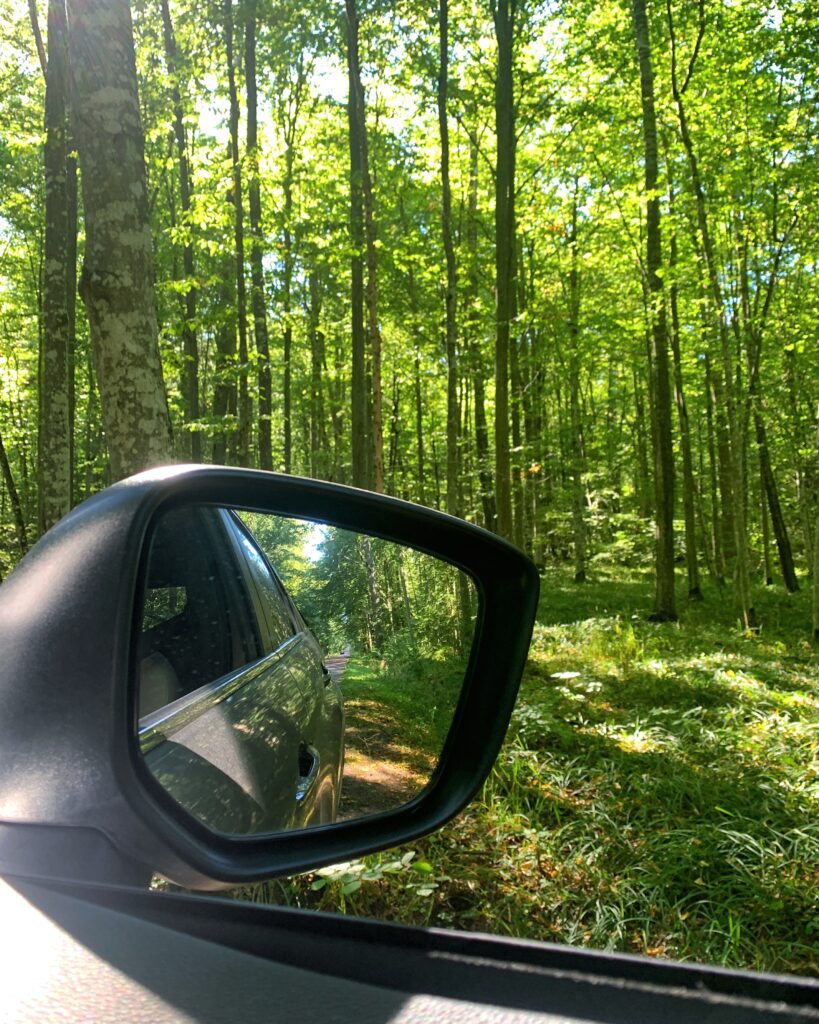

This part of Poland is also home to the Masuria region, a land known for its more than 1,000 lakes, on which Poles like to sail. It is also where you will find many important sites related to the history of World War II (including Hitler’s command centre during the invasion of the USSR).
Poland is also home to many diverse mountain ranges – the Tatra Mountains, the highest in the country, the Karkonosze in Lower Silesia, and a mass of higher and lower mountains with hundreds of kilometres of hiking and cycling trails. Poland is also the “capital” of singletracks and demanding routes for cyclists in this part of Europe.

A large part of the country is covered with forests, and the most famous is the Białowieża Forest, a primaeval forest that has been growing here for hundreds of years and still remembers the first Polish kings. There are 23 national parks in Poland – and not just at the seaside, in the mountains and in the land of lakes.
More and more tourists are exploring Poland by canoeing, climbing in the Rudawy Janowickie Mountains and Jura Krakowsko-Częstochowska or on multi-day road trips. One of the most important advantages of Poland is that the green areas and natural attractions are spread quite evenly across the country.
This means that usually, after 1-2 hours, you will be in a place where you can take a break from the hustle and bustle of the city and rebuild your energy reserves. Add to this the fact that travelling around Poland is fast and cheap, and you have a recipe for a good work-life balance.
I place very high demands on the quality of food on offer in Poland, as I always base my purchases on natural products with pure ingredients. I am on a gluten-free diet and avoid all chemical food additives. I am pleased to say that with such requirements, doing healthy shopping in Poland is not a major challenge.
You can find organic products with clean ingredients, no added sugar or preservatives, and good quality meat and dairy in neighbourhood shops and discount shops. You can also shop at local markets, where the produce comes straight from the farmers.
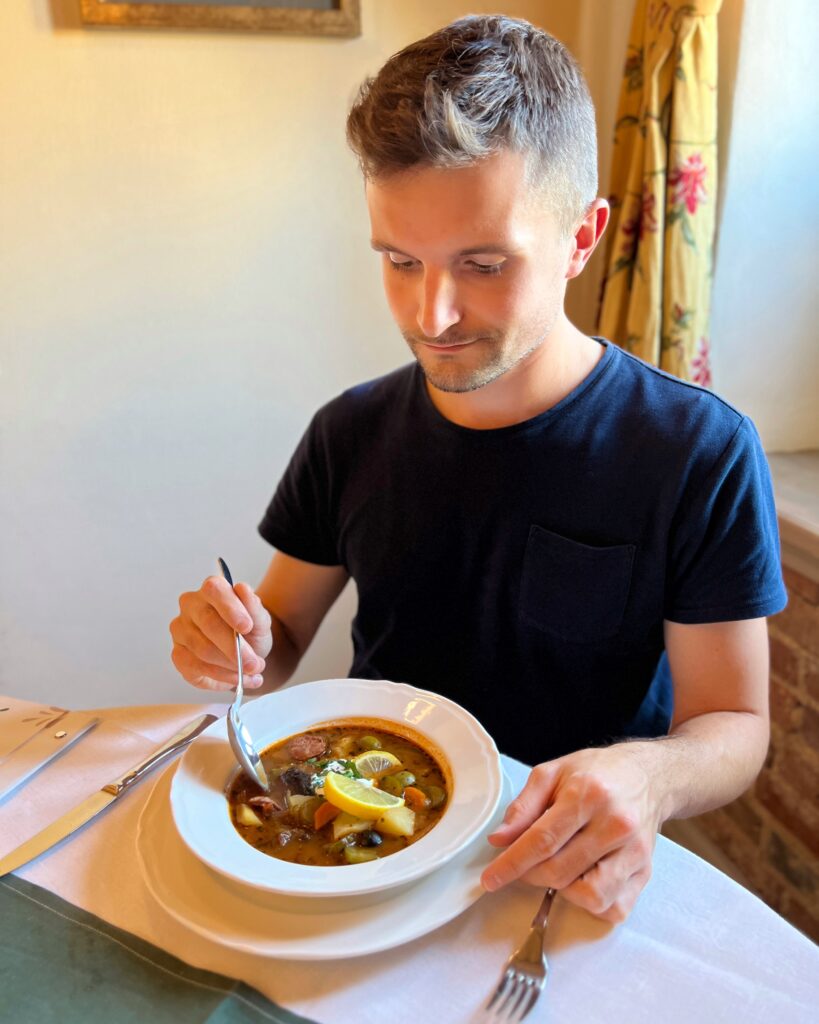

It’s often still dirty from the soil it was plucked from moments before. In such places, you can buy, among other things, fresh, unpasteurised milk (banned by law in the USA, funnily enough).
If you like convenience, a number of products can be bought online, including on a subscription model. Below you will find some of my favourite places where I regularly do my grocery shopping:
The times when Poland was associated with disastrous roads and slow railways have been gone for several years now. Travelling around Poland has become a great pleasure. There is a very good system of express roads and motorways (free for the vast majority) available for drivers, and the railway network is developing and modernising year by year.
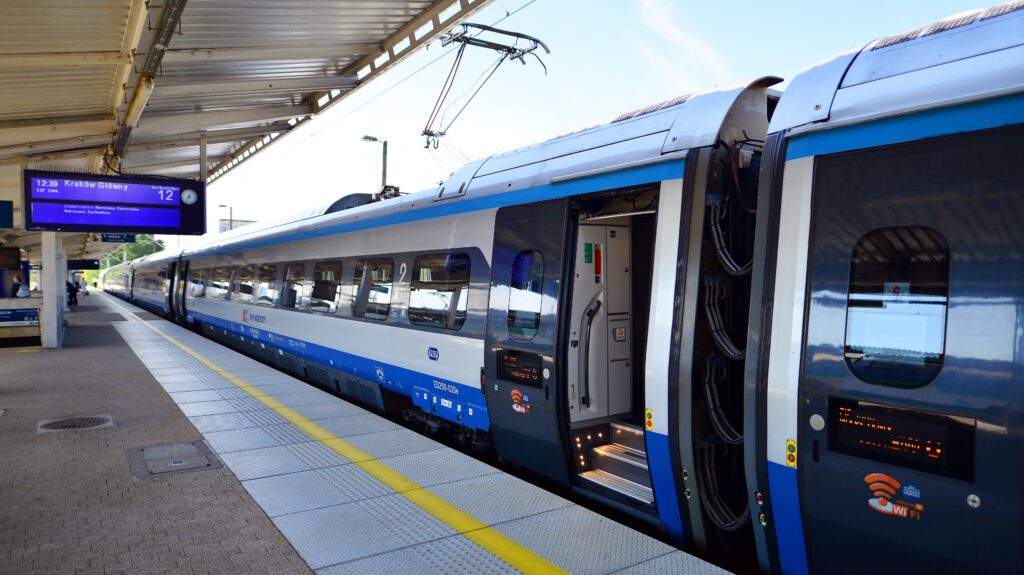
The backbone of long-distance public transport are trains. In Poland, there is no single, state-owned carrier operating all trains – regional companies (traffic within a specific voivodship) and nationwide companies operating intercity and international connections (mostly PKP Intercity) are responsible.
PKP Intercity offers several train types:
You can buy train tickets via the convenient KOLEO app and show them on the train during checks without having to print them. You can check train timetables on the KOLEO website, but the best way to do this is on the Portal Pasażera.
Bus connections are operated by local carriers and larger companies like Flixbus, which also runs a lot of international connections from Poland. Check their timetables on e-podroznik.pl and on the Flixbus website. Tickets can often be purchased online.
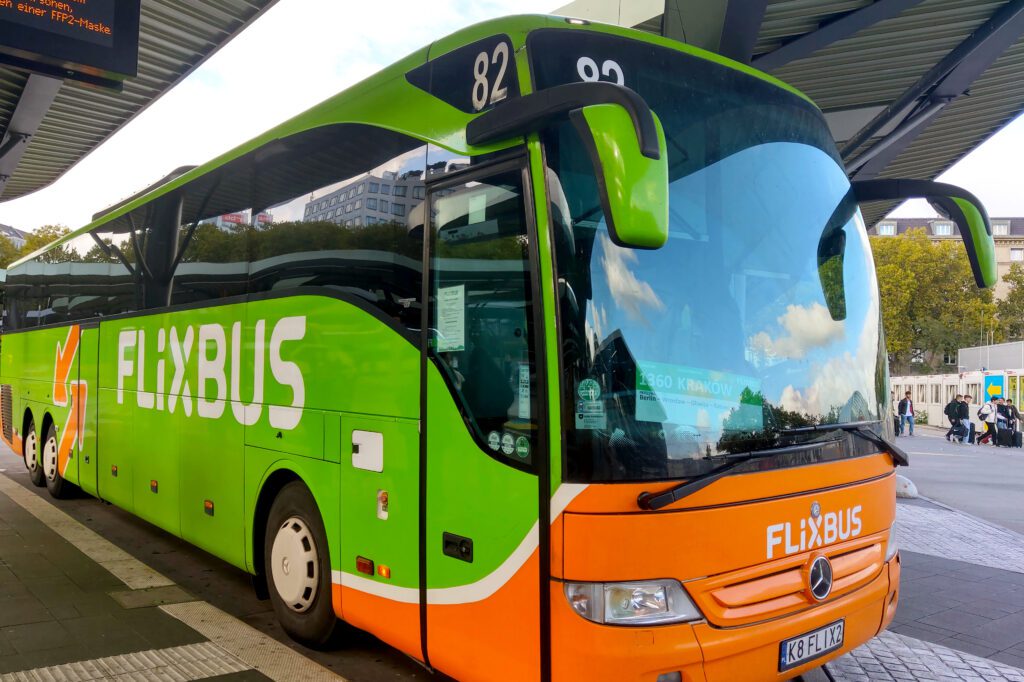
Poland’s railway and bus stations have undergone major renovations recently, with only a few still awaiting refurbishment. The stations are clean, usually free of homeless people and protected by private security services. Even small railway stations get 24-hour security after renovation, which protects against vandalism and devastation.
You can also travel around Poland by plane, using regional airports. Almost every one of them serves flights to Warsaw, and some of them also serve longer distances within Poland (e.g. Wrocław-Gdańsk, Poznań-Cracow routes) and quite a few international connections. You can check available connections on FlightConnections.
Poland is located in a moderate climate zone, but it is a large enough country that average temperatures and weather vary considerably on a north-south axis. So you can match the city you live into your climatic preferences and feel as close to your thermal comfort as possible in Poland.
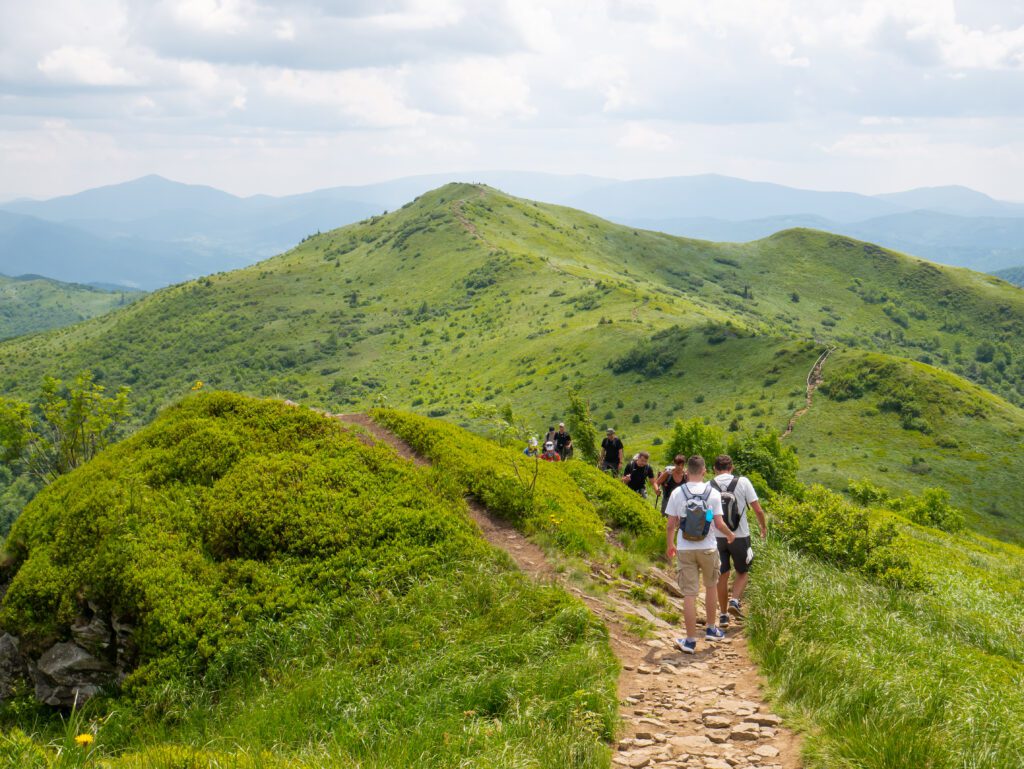
Poland’s heat pole is Lower Silesia, which lies in the country’s south-west, and Podkarpacie (south-east). It is always noticeably warmer in Wrocław or Legnica than in the northern part of the country. More and more vines are being grown in the region – who would have thought that Poland would be associated with wine production?
This part of the country is my favourite place – it’s warm, close to the mountains (1-3 hours by car or train), and winters are the mildest. The southern Sudetes are an exception – it is always noticeably colder in the mountains.
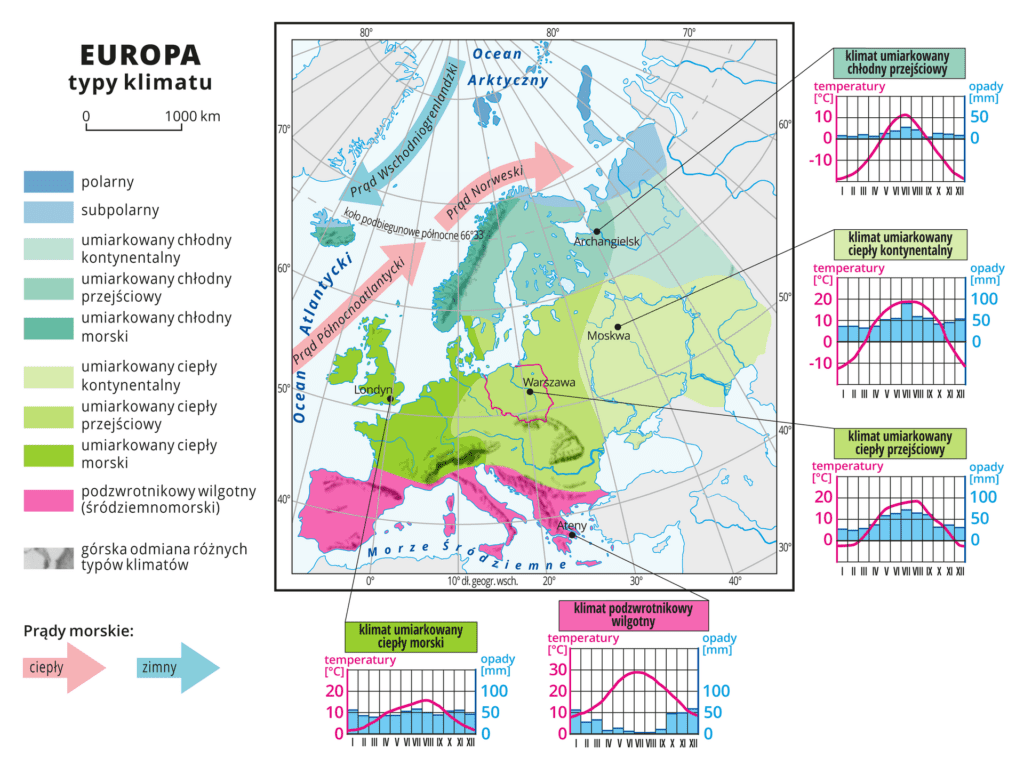
The Polish cold pole is Podlasie and the eastern part of Warmia and Masuria. Poles laugh a little at the town of Suwałki because when pleasant temperatures reign in the weather forecasts all over Poland, it is always… at least a few degrees less, and it rains. I exaggerate that “always”, but it is clearly the colder part of the country.
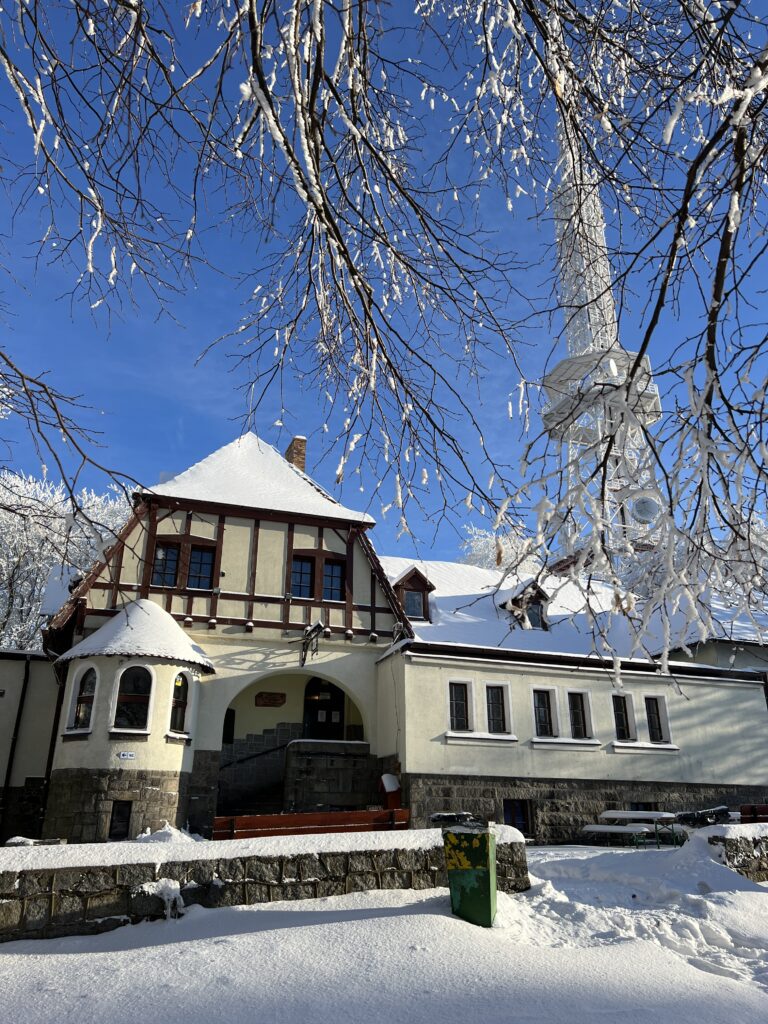

Poland tends to have distinct seasons. Summer is hot, sunny and usually devoid of any major rainfall. In winter, temperatures drop below zero, which means that when preparing to live in Poland for an extended period of time, you should stock up on a whole spectrum of clothing.
Think about clothes from lightweight linen shirts for high heat to warm quilted jackets for the coldest days of winter. Having lived in Asia, I appreciate this Polish variety.
Poles complain strongly about the state health service, and in most cases, they are right. New hospitals and outpatient clinics in Poland work quite well, but at most points, you are faced with long queues, not very modern equipment and treatment that consists of writing a prescription for yet another drug.
This approach is typical not only of Poland but of Western medicine as a whole, which is based on supporting the interests of big pharmaceutical companies. However, under basic health insurance in Poland, you can count on access to emergency medicine (ambulance trips are free for patients), access to family doctors and specialists (you have to wait in queues to see them) and, if necessary, hospitalisation.


Not all medical services are of poor quality – in many cases, I have received professional help in state medical care centres. Poles often complain about it, but in the global comparison, it comes off quite well. Medical care is free of charge for insured persons.
Fortunately, the growing awareness of Poles has meant that many alternative, holistic therapies and specialists are available in the country. In big cities, you can easily find a specialist in acupuncture, acupressure, and reflexology.
More and more chiropractors and specialists in herbal treatment and Chinese medicine are also appearing. Prices for access to such specialists are similar to those for private medical visits (in the order of 150-250 PLN per visit).
If you prefer to use Western medicine, there are also a lot of private hospitals in Poland, which present a much higher level than state healthcare. You can buy such a medical package yourself, but if you work in Poland as an employee, your employer may often offer a free or low-cost package for access to private medical care.
Popular companies include Luxmed and Medicover – they have many branches in large Polish cities.
Tens of thousands of foreigners from different parts of the world have been arriving in Poland for many years, and many of them choose to stay in Poland for the long term. Each person brings a piece of his or her culture to society, which makes the streets more diverse and interesting.
There are many festivals, workshops, and smaller or larger concerts and performances in the cities. Each such event is an opportunity to meet people with similar interests.

In Poland, the culture of beach bars & urban bars has developed strongly. In the warmer months, many urban spaces are transformed into areas with deckchairs, sand and live music of various genres. I like electronic music and, living in Wrocław, I have somewhere to go in the evening almost every week.
Every time you go out is a good opportunity to meet new people. Poles are open and usually speak English well – so I recommend chatting to people from which you sense a good aura.
Because of the large number of foreigners, quite a few events also take place in English. You can find a lot of art workshops, courses, art exhibitions or concerts, which are also an opportunity to make new friends. It’s a good idea to start your search from the Events tab on Facebook and, once you have more experience, directly from the fanpages of the places you like.
You can also use a more classic form of entertainment and start visiting Polish cinemas, theatres, philharmonics and opera houses. Some events are conducted in English, but you don’t necessarily have to be driven by this when choosing. I especially recommend music events – it is easy to find concerts not only by Polish artists but also by acclaimed artists from abroad.
During the war in Ukraine, Poland proved to be one of the most reliable and open European countries. In the first days of the war, tens of thousands of people came to Wrocław, where I live (and it was one of the hundreds of cities that helped), who were helped by volunteers working around the clock to find new homes and take care of food and clothing supplies in the first days of their new lives.
Media messages about a xenophobic Poland are a huge manipulation. Polish cities are home to a great mix of cultures from different parts of the world – hundreds of thousands of Ukrainians, large minorities from Asia, the Middle East, and many English, Americans, Italians, and Spaniards.
At the same time, Poland isn’t the first choice for mass migrants, which makes the streets calm and safe. Poland is also a frequent destination for retirees from Western Europe – it is cheaper, safer and often more comfortable here.
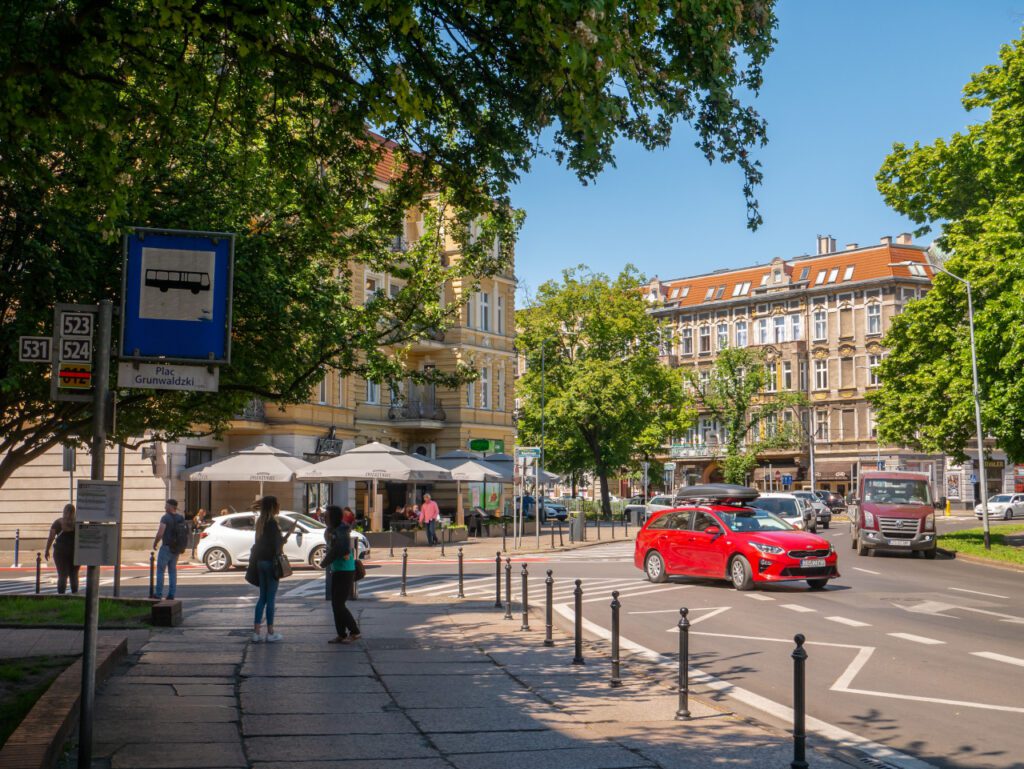
I enjoy strolling around the market square of my city. Alongside Polish artists, there is a mass of representatives of different nationalities on the streets, often right next to foreign-run restaurants and various businesses. Poles like to travel, and frequent travel increases openness to otherness and other cultures.
Unfortunately, assaults on foreigners and xenophobic and nationalistic behaviour also occur in Poland. However, social tensions are several levels lower than in Western Europe. Foreigners living in Poland don’t come here for welfare (which they are unlikely to get in Poland) – so they have a desire to work and integrate into the local society. I think it is easy to feel at home here.
Living in Poland has, in my opinion, many more positives, but the negatives also exist. I have noticed that many of these disadvantages are due to Poland’s recent past when the country was part of the communist bloc, and development was severely limited.
A lot of remnants of the old times can be seen today, but Poland is developing dynamically and changing day by day. Let’s check out what I think are the biggest disadvantages of living in Poland.
Poles love to complain about bureaucracy, but at the same time, not much is being done to reduce it. Old procedures that still remember the communist times are being replaced by those related to the European Union, which for the ordinary citizen is the same – because it involves forms to be filled in and queues in offices.
Bureaucracy in Poland is doing well because it is helped by an often changing and unclear law – especially concerning doing business in Poland. I get the impression that every year I have to remember more obligations and incur more costs to be able to run a business in Poland. Politicians talk a lot about simplifications, but they remain at the stage of promises.
This doesn’t mean that it’s impossible to run a successful business in Poland. However, it’s worth giving yourself a break from dealing with all the requirements yourself and delegating these tasks to an accountancy firm. They are up to date with the law and its constant changes – so you have more confidence that they’ll remember the formalities.
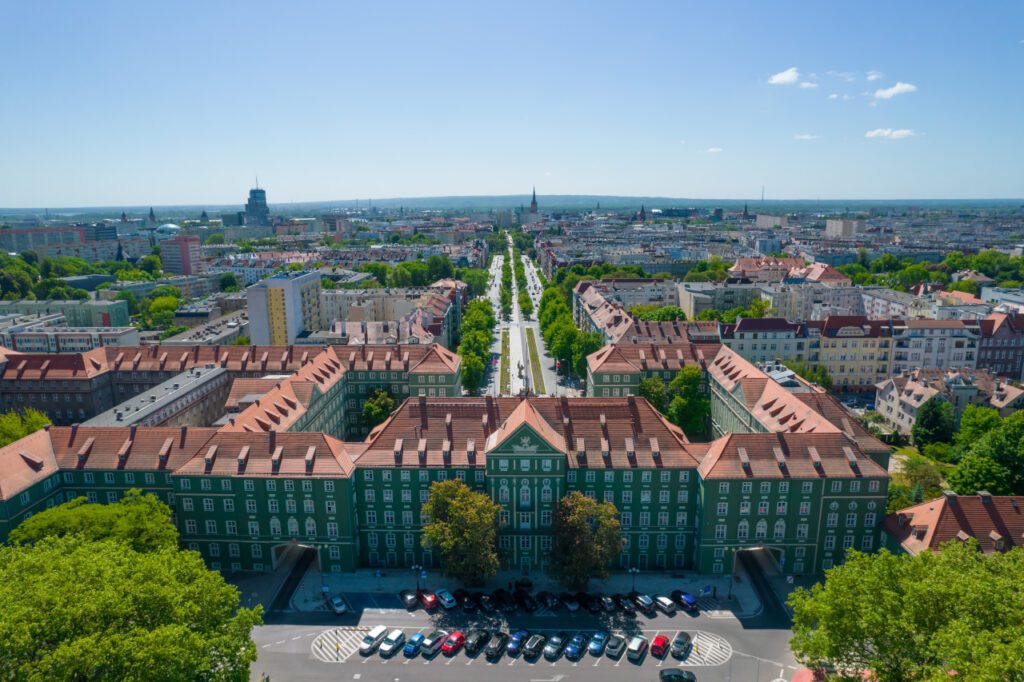
Fortunately, many matters can already be dealt with via the e-PUAP portal, which you can also access as a foreigner legally residing in Poland for a longer period of time. Many matters can also be dealt with in offices at a single window, without spending the whole day wandering from office to office.
Unfortunately, migration and residence issues in Poland are associated with long queues and the need to be present in person in an office.
You may have already noticed from reading this text that I’m not a fan of the idea of the state as a body without which normal life on this planet could not go on. I believe that the functions performed by the state could be successfully replaced by private institutions – especially in the field of health care or the police.
The quality of public health care in Poland may not be bad by world standards, but everyday life is not colourful. Long queues, difficult access to specialists and a quality that is disproportionate to the amount of contributions and taxes that are extracted from citizens’ salaries without their consent and willingness are all features of the Polish health service.
It works very differently in the private sector, where once you have paid for a package (or received it as part of your job), you can count on high-quality care and no queues.
The police are heavily involved in their operations when breaking the law infringes on the state’s interest. However, if someone steals something from you or you feel a threat to your safety, the Polish police are likely to drop the case for lack of evidence or the “complicated nature of the case”. For many Poles, the police in Poland aren’t an authority but rather an unpleasant necessity to deal with on a daily basis.
Fortunately, the great sense of freedom of Polish citizens and the passivity of the police means that they don’t enter heavily into the lives of citizens. The streets are quieter than in Western Europe, and the police aren’t armed to the teeth, as is standard in Germany or France. Police officers are also sometimes helpful, but it’s still safest where private entities are responsible for protection (like hotels, cultural places, and so on).
Poland is internationally regarded as a strongly Catholic country where religion is a very important element of social life. This image was also maintained by the Law and Justice government, which ruled Poland for eight years (but its rule ended in 2023). Ten years ago, being a Catholic was declared by 87.6% of Poles, and in 2021 only 71.3% (more than 6 million fewer).
The further west one goes in Poland, the percentage of Catholics and believers decreases – in Lower Silesia, being Catholic is declared by only 65% of the population. However, this does not change the fact that the landscape of Polish towns and villages is full of churches, which is an important advantage in terms of tourism.

Religion is occupying less and less space, and for people of the younger generation, it often no longer has any significance. Living in Poland, you will notice that on Sundays, the churches are filled mainly with older people (55+), and the number of young people is negligible.
Thanks to a tradition that is still strong, you will also have the opportunity to take advantage of several public holidays that result from the calendar of church holidays – such as 6 January (Epiphany), 8 June (Corpus Christi) or 1 November (All Saints’ Day).
Unfortunately, the Catholic Church is still a powerful institution that influences the shaping of political everyday life in Poland. The church’s support was important during the struggle against communism, but nowadays, it’s rather an organ associated with paedophile scandals and the rapid enrichment of priests.
The church’s lobbying influenced, among other things, the introduction of the Sunday trading ban, with which a large proportion of Poles are dissatisfied.
Despite the fact that more and more Poles (especially young Poles) speak perfect English, the older generation cannot cope with the language. Some still remember the basics of Russian from school (they learned it back in the communist era), but generally, Polish is still the only way to get along.
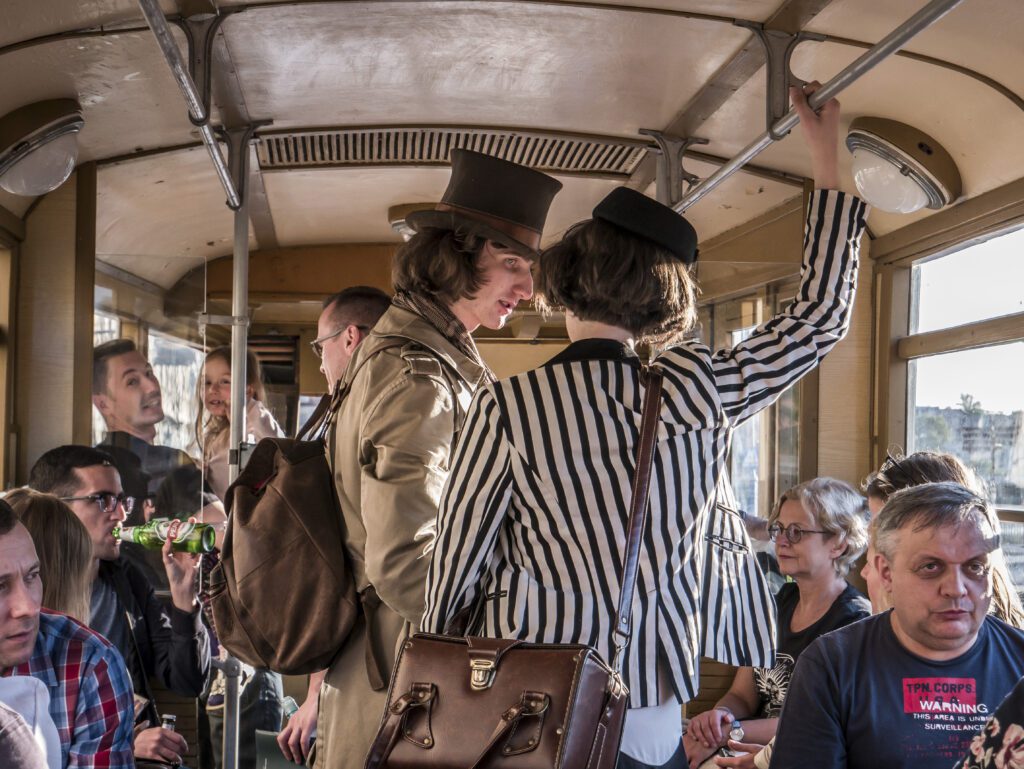
The problem becomes greater when it comes to communicating with officials and law enforcement services. Even employees of migration services dealing with, for example, residence permits in Poland or border guards are often unable to communicate even in basic English. Google Translate and a lot of smiles and patience come in handy. Or you can learn Polish slowly!
People who see a foreigner’s problems with communication often approach and offer their help themselves. I have seen many such scenes in shops, pharmacies, train stations or airports. All it takes is a big smile and help will appear.
Living in a large city, you will not have major communication problems on a daily basis. The contents of ticket machines, ATMs, most of the relevant signs in public spaces etc. are also available in English. In case of problems, finding a younger person on the street who speaks English will succeed in at most a few attempts.
That all Poles drink a lot of alcohol is a myth that is losing ground more and more every year. However, there is no denying that in Poland, most parties are still based on drinking alcohol – if you like to party this way, you will definitely feel good in Poland. However, drinking is not necessary to have a good time in Poland.
However, more and more young people are giving up heavy alcohol consumption (a large proportion of Poles are much more aware of healthy lifestyles than some Western societies) and having fun in other, more health-enhancing ways.
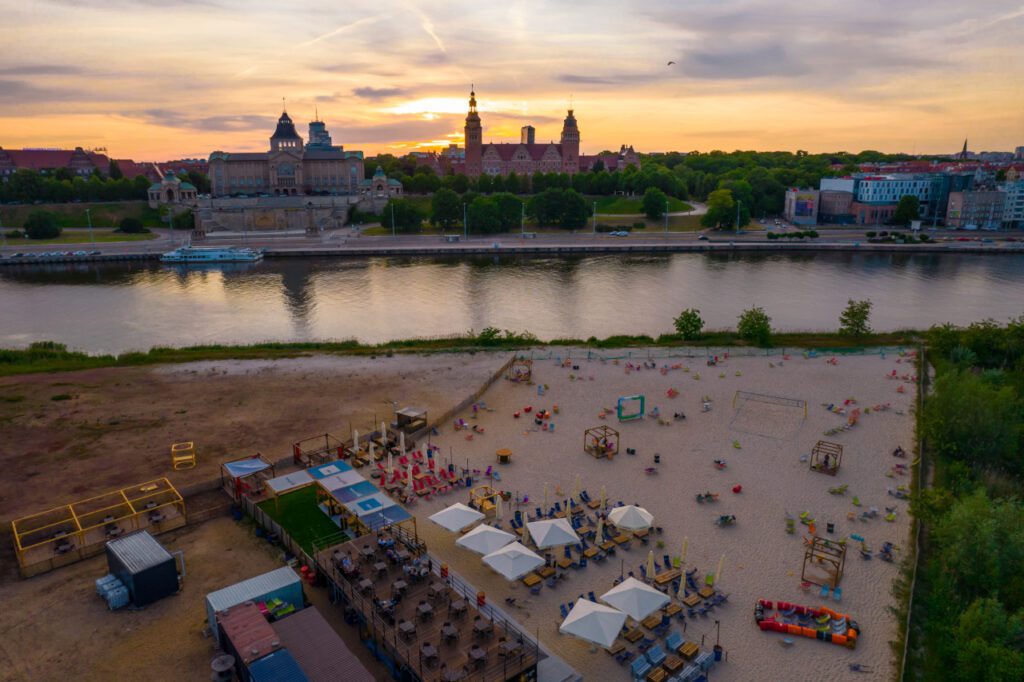
There is a growing number of medical marijuana patients in the country, which is generally having a strong effect on Poles opening up to otherness and reducing aggression.
Remember that in Poland, drinking alcohol (including beer) in public places is prohibited, and the police can fine you. There are no such bans in our German and Czech neighbours, which makes it often assumed that there will be no problem with this in Poland either. If you want to drink beer outdoors, don’t do it in the middle of Market Square and…. it should be fine. Clean up after yourself, and don’t behave loudly.
In Poland, acts of aggression against both Poles and foreigners still occur, but the statistics are no worse than in other European countries in this part of the continent. Living in Poland, it’s enough to take the usual precautions – not wandering at night in less frequented neighbourhoods and generally not provoking an aggressive response from others with your behaviour.
A lot of good is done by prudent and polite behaviour in public spaces. For example, any sign of aggressive behaviour towards women can end very quickly on a Polish street – with a “forceful explanation” of the situation. The mere presence of people of different skin colour or physiognomy doesn’t make much of an impression on Poles – and if anything, it is only positive and friendly. *
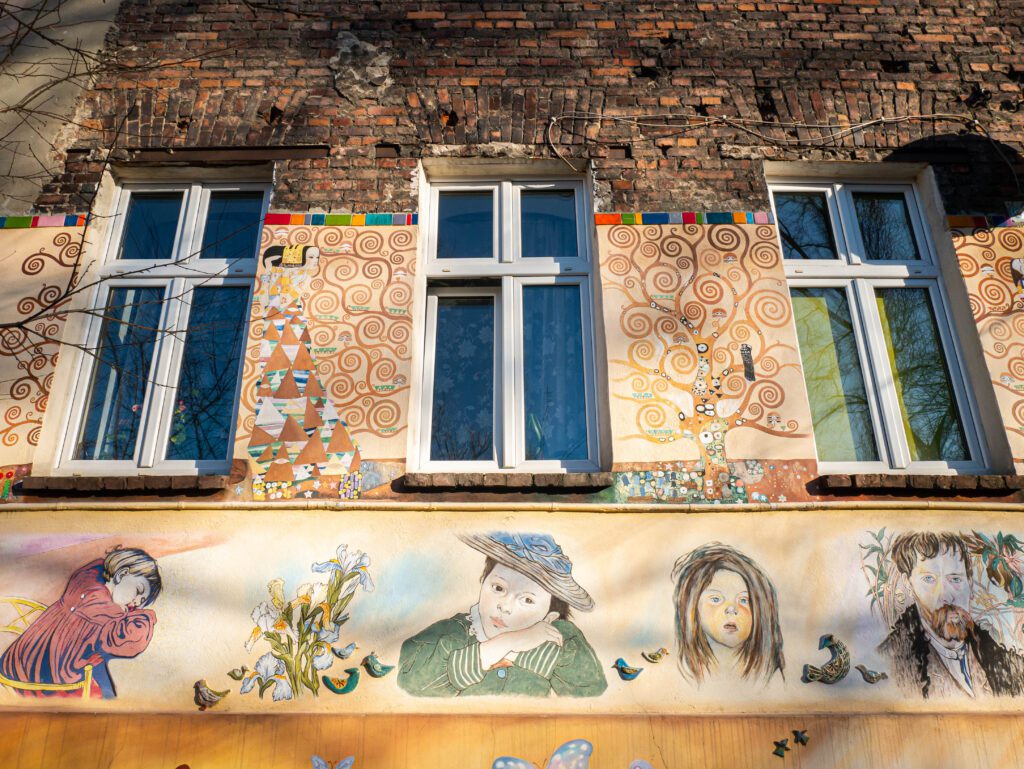
I have never been in a situation where my personal safety was at risk. However, to be safe, I carry pepper spray with me, which admittedly has never been used, but can come in very handy in emergency situations. I don’t mean that Poland is less safe than the countries of Europe – however, it is also worth being prepared for unlikely events.
* Problems with xenophobia usually concern media messages from politicians and certain extreme groups with nationalistic tendencies. Poles encountered on the street are usually open to all otherness, and year by year, the attitude towards otherness is changing from negative and indifferent to increasingly positive.
You have just seen a list of the advantages and disadvantages of moving to Poland, which should make it easier for you to decide whether moving to Poland is a good idea. It seems to me that the pros and cons are clearly in favour of moving to Poland. If such a decision is on your mind – I’m keeping my fingers crossed that you make a good decision for you!
Welcome to my travel blog!

Hi! I’m Bartek Dziwak – traveller & travel blogger with 10 years of travel experience.
Feel free to use a tons of information from this blog to make your travel better.
Practical Tips
Book your stay: check out hotels and hostels in a good location and book your stay before others take your place.
Exchange money cheaper: order a free Curve card to exchange money cheaper than in an exchange office and get £10 as a gift
Check My Travel Shop: check ready-made hiking routes and city attractions maps that will make your sightseeing easier.
Is my article helpful?
Help me keep making these travel articles for you by supporting me with a cup of coffee.
Check My Ebooks
Polish Mountains - MAP of Mountain Ranges & Peaks & Accommodation
BIAŁOWIEŻA NATIONAL PARK – MAP of 50+ Best Places to See
MAZURY & WARMIA (LAKES DISTRICT) – MAP of 200+ Best Places to See
Mountains of Lower Silesia (Poland) - 55 Best Hiking Routes
Prepare to Travel Abroad – Practical Tips
Exchange money cheaper: order a free Curve card to exchange money cheaper than in an exchange office and get £10 as a gift.
Book accommodation that suits you: check out hotels, hostels & apartments in a good location and book your stay before others take it.
Check My Travel Shop: check my ebooks with maps of cities & regions attractions and ready-made hiking routes that will make your sightseeing easier.
Is my article helpful to you? Help me keep making these travel articles for you by supporting me with a cup of coffee. I really love Aeropress!

Hi from the author! I’m Bartek Dziwak – traveller and founder of BartekOnTheGo.com travel blog.
I inspire people to travel around the world on their own and discover both famous and unusual places.
Check My Ebooks

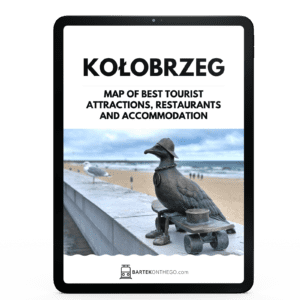
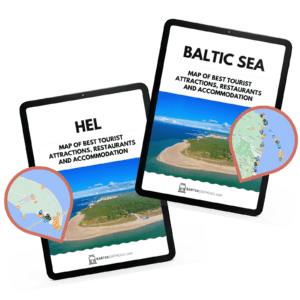
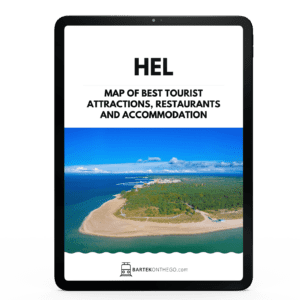
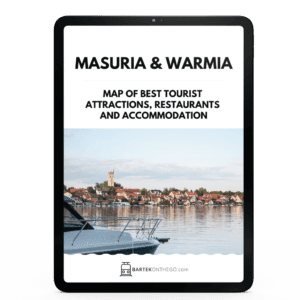
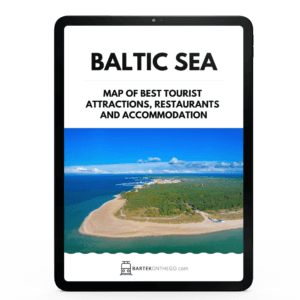
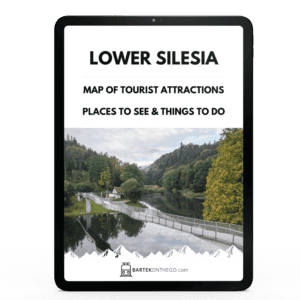
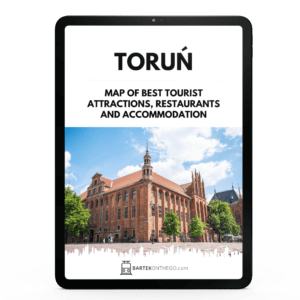
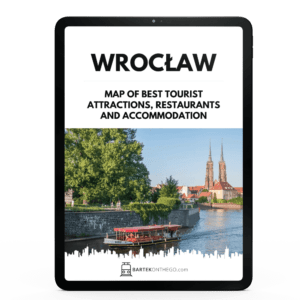
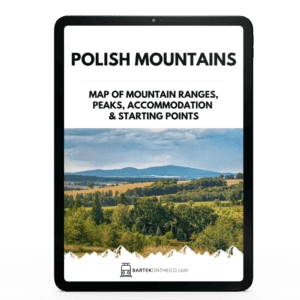
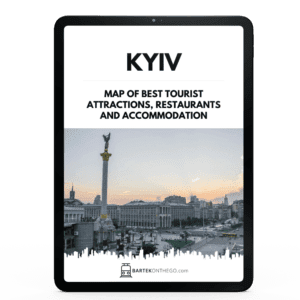
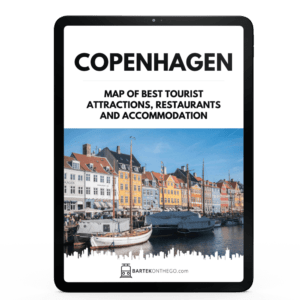
| Cookie | Duration | Description |
|---|---|---|
| cookielawinfo-checkbox-analytics | 11 months | This cookie is set by GDPR Cookie Consent plugin. The cookie is used to store the user consent for the cookies in the category "Analytics". |
| cookielawinfo-checkbox-functional | 11 months | The cookie is set by GDPR cookie consent to record the user consent for the cookies in the category "Functional". |
| cookielawinfo-checkbox-necessary | 11 months | This cookie is set by GDPR Cookie Consent plugin. The cookies is used to store the user consent for the cookies in the category "Necessary". |
| cookielawinfo-checkbox-others | 11 months | This cookie is set by GDPR Cookie Consent plugin. The cookie is used to store the user consent for the cookies in the category "Other. |
| cookielawinfo-checkbox-performance | 11 months | This cookie is set by GDPR Cookie Consent plugin. The cookie is used to store the user consent for the cookies in the category "Performance". |
| viewed_cookie_policy | 11 months | The cookie is set by the GDPR Cookie Consent plugin and is used to store whether or not user has consented to the use of cookies. It does not store any personal data. |